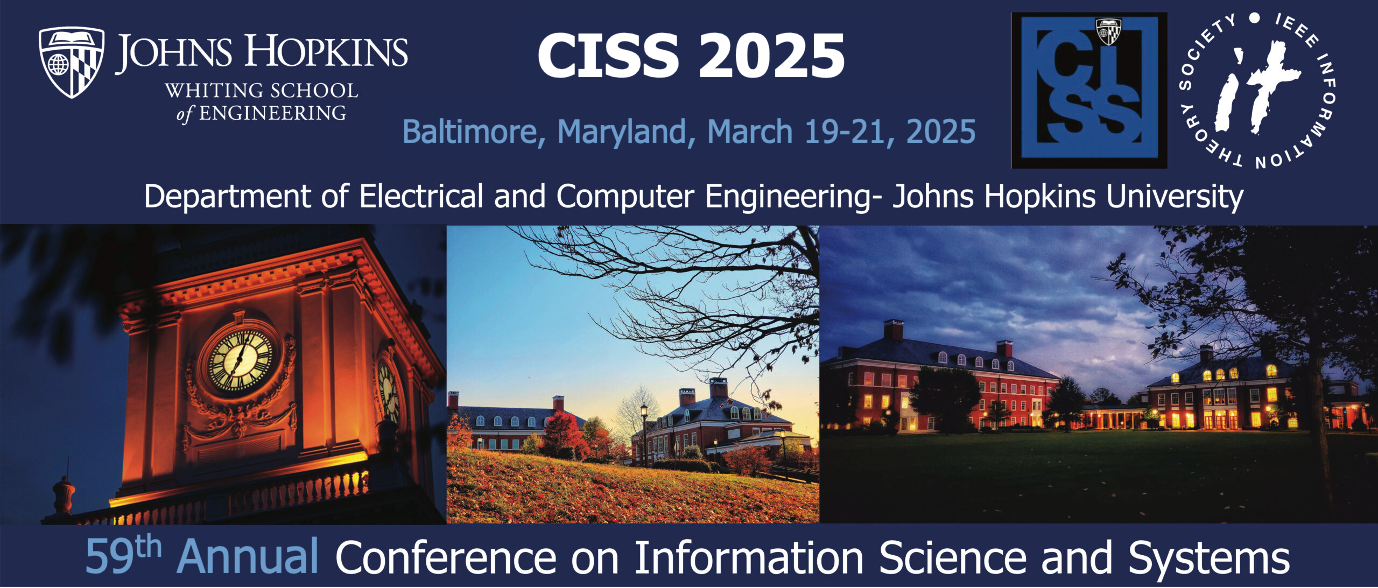Energy Systems
A5L-B: Energy Systems
Session Type: LectureSession Code: A5L-B
Location: Room 2
Date & Time: Wednesday March 22, 2023 (15:20-16:20)
Chair: Mahdi Mehrtash
Track: 2
| Paper ID | Paper Name | Authors | Abstract |
|---|---|---|---|
| 3144 | Coarse-Grained High-Speed Reconfigurable Array-Based Approximate Accelerator for Deep Learning Applications | Katherine Mercado, Sathwika Bavikadi, Sai Manoj Pudukotai Dinakarra | Deep Neural Networks (DNNs) are widely deployed in various cognitive applications including computer vision, speech recognition, and image processing. The surpassing accuracy and performance of deep neural networks come at the cost of high computational complexity. Therefore, software implementations of DNNs and Convolutional Neural Networks (CNNs) are often hindered by computational and communication bottlenecks. As a panacea, numerous hardware accelerators are introduced in recent times to accelerate DNNs and CNNs. Despite effectiveness, the existing hardware accelerators are often confronted by the involved computational complexity and the need for special hardware units to implement each of the DNN/CNN operations. To address such challenges, a reconfigurable DNN/CNN accelerator is proposed in this work. The proposed architecture comprises nine processing elements (PEs) that can perform both convolution and arithmetic operations through run-time reconfiguration and with minimal overhead. To reduce the computational complexity, we employ Mitchell’s algorithm, which is supported through low overhead coarse-grained reconfigurability in this work. To facilitate efficient data flow across the PEs, we pre-compute the dataflow paths and configure the dataflow during the run-time. The proposed design is realized on a field-programmable gate array (FPGA) platform for evaluation. The proposed evaluation indicates 1.26× lower resource utilization compared to the stateof- the-art DNN/CNN accelerators and also achieves 99.43% and 82% accuracy on MNIST and CIFAR-10 datasets respectively. |
| 3165 | Net Load Forecast Based on Behind-the-Meter Disaggregation of Smart Meter Data | Mian Jia, Kang Pu, Yue Zhao | As the penetration of behind-the-meter (BTM) rooftop solar energies continues to increase in power distribution systems, it is of paramount importance for load serving entities and system operators to forecast net loads in the system. In this paper, novel algorithms for training high-performance predictors for day-ahead net load forecasting are developed. Importantly, the overall method only utilizes metered net load data and does not require any monitoring data of solar generation. Methodologically, the net load data trace is disaggregated into estimated BTM solar and load traces, based on which separate predictors are then trained for solar generation and load forecasting exploiting their distinct natures, respectively. For solar generation forecasting, time data, weather forecast, and potentially solar irradiance forecast are used as input features of the predictor. For load forecasting, time data, weather forecast, and judiciously chosen load data in the recent past are used as input features of the predictor. The two predictors\' outputs are combined to produce the final net load forecast. The developed method is comprehensively evaluated based on two real-world smart meter data sets from Ithaca, NY and Clifton park, NY, respectively. High accuracy of day-ahead net load forecast is demonstrated. |
| 3205 | Offline Reinforcement Learning for Price-Based Demand Response Program Design | Ce Xu{2}, Bo Liu{1}, Yue Zhao{2} | In this paper, price-based demand response (DR) program design by offline Reinforcement Learning (RL) with data collected from smart meters is studied. Unlike online RL approaches, offline RL does not need to interact with consumers in the real world and thus has great cost-effectiveness and safety advantages. A sequential decision-making process with a Markov Decision Process (MDP) framework is formulated. A novel data augmentation method based on bootstrapping is developed. Deep Q-network (DQN)-based offline RL and policy evaluation algorithms are developed to design high-performance DR pricing policies. The developed offline learning methods are evaluated on both a real-world data set and simulation environments. It is demonstrated that the performance of the developed offline RL methods achieve excellent performance that is very close to the ideal performance bound provided by the state-of-the-art online RL algorithms. |
| 3106 | Data-Driven Analysis and Optimization for Urban Energy Systems Equitable Resilience | Gabrielle Ebbrecht, Juntao Chen | This paper seeks to address the profound power resilience inequity in New York City by means of strategic allocation of electric vehicle (EV) charging infrastructure to support the power grid in challenging scenarios, e.g., natural disasters or health crises such as the COVID-19 pandemic. We employ data-driven approaches to infer statistical relationships between communities\' power resilience index and available EV charging infrastructure as well as other prominent social-demographic factors. This inference yields the development of a machine learning model that can predict reductions in power resilience inequity after implementing the proposed resource allocation strategy. We further develop an optimization framework that jointly considers equity and efficiency to guide the optimized EV charging infrastructure distribution across the city. Case studies demonstrate the capability of the devised approach in enhancing power resilience equity in marginalized communities. |
